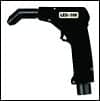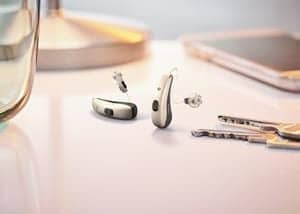The Hearing Loss Association of America (HLAA), Bethesda, Md, has created “Purchasing a Hearing Aid: A Consumer Checklist” to help consumers ask the right questions about testing, dispensing, and trial of hearing aids. HLAA says consumers may find it helpful to take the list to the dispenser’s office when purchasing a hearing aid.
For consumers who have never purchased a hearing aid, the process may seem daunting. Even those who have been purchasing hearing aids for some time may find there are key questions they have not asked in a long time, or perhaps never thought to ask at all, according to HLAA, such as:
Do they ask to see a hearing aid that includes a telecoil program?
Do they know how many microphones the hearing aid has?
Do they know what their hearing aid rating for cell phone use is and how to use that information when purchasing a cell or cordless phone?
Do they talk about assistive listening devices? And does their dispenser keep them up to date about alerting devices?
Do they know how to best protect themselves in case of a fire or other emergency?
Do they know how much the hearing aid costs and how much they are being charged for the services of the dispenser? Those services often include several return visits. Many consumers do not return to the dispenser at all, because they do not want to “bother” the dispenser, HLAA says, adding that it is great to know that return visits are part of the package, and even better to know exactly how many return visits the dispenser provides.
When consumers purchase hearing aids, state law can provide protections for them. Do they know how long they have for a trial period under state law? Do they know what nonrefundable fees will be charged even if they return the hearing aid during the trial period?
Consumers Union reported in April 2003 that a woman returned her new hearing aids to her dispenser during the trial period, a week after she got them, HLAA says. The dispenser charged $4,600 for the aids plus $270 in nonrefundable mold and preparation fees. When she returned the aids, the dispenser charged a restocking fee of $690. She paid a total of $960 for a 1-week attempt to try hearing aids that she determined she could not use. This woman filed a complaint, noting, “I’m unable to account for your charge of $690 for restocking. What does this cover?” HLAA says.
Consumers need to know what you could be charged, HLAA says, noting that some states have stringent regulations protecting consumers; others have nothing in place. Even in those states where laws are in force, it may be difficult to find out what the law is, HLAA says, adding that consumers need to ask the right questions before they buy a hearing aid.
HLAA plans to aggregate the information and report its findings.
Lise Hamlin, HLAA’s director of public policy and state development, is available to answer questions about the checklist.
[Source: HLAA]




